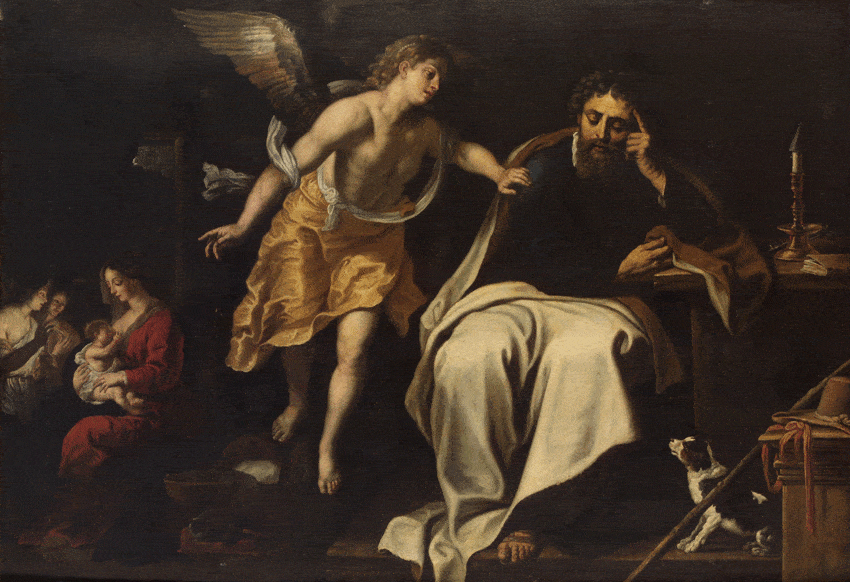
Since St Joseph was so close to Our Lady and so holy, is it possible that he too was assumed body and soul into heaven when he died?
Although we cannot be absolutely sure, there is a strong possibility that St Joseph too was assumed into heaven. As you say, he was very close to Our Lady, as her husband, and he was extremely holy, to a point where he may have been without sin, so God may have rewarded him in this way.
What is more, the Holy Family was always very united on earth, and so it is likely that Jesus and Mary, who are in heaven in their bodies, would have wanted St Joseph to be there too in that way. That St Joseph may have been assumed body and soul into heaven was certainly the view of a number of saints.
Among them was St Bernardine of Siena OFM (1380-1444), an Italian saint who did much to spread devotion to St Joseph. He said in one of his sermons: “We may piously believe, but not assert, that the Most Holy Son of God Jesus crowned his foster-father with the same privilege which he gave his Mother: that as he assumed her into heaven, bodily and glorious in soul, so also on the day when he arose he took Joseph up with him in the glory of the Resurrection.
“So that, as this glorious family, Christ, the Virgin and Joseph, had dwelt together on earth in the labours of life and in loving grace, so now they reign in heaven in loving glory of both body and soul.”
It is recorded that when St Bernardine was preaching in Padua that St Joseph was in heaven body and soul, a bright heavenly gold cross appeared above his head. This was taken as a sign that what he was saying was true. Blessed Bernardine de Bustis OFM (1450-1513 witnessed the event, and he also believed in the bodily assumption of St Joseph.
Another great saint who believed in St Joseph’s bodily assumption was the doctor of the church, St Francis de Sales (1567-1622). In the nineteenth of a series of spiritual conferences, he said that “we must nowise doubt that this glorious saint has great credit in heaven with him who has so favoured him as to raise him to it both body and soul; which is the more probable as we have no relic of him here below on earth; and it seems to me that no one can doubt this truth.
“For how could he who had been obedient to him all the time of his life, have refused this grace to St Joseph?”
In that conference St Francis de Sales described what might have been said during the meeting of Jesus and St Joseph in the Limbo of the Fathers, where the holy souls of the Old Testament were waiting for Jesus’ death and resurrection, when Jesus descended there after his death on the Cross.
“And if it is true, as we must believe, that by virtue of the most Holy Sacrament which we receive, our bodies will rise again at the day of judgment, how can we doubt that our Lord caused to rise with him to heaven in body and soul the glorious St Joseph who had had the honour and the grace of carrying him so often in his blessed arms, in which our Lord took such pleasure?” St Francis said.
“Oh, how many kisses he tenderly gave him with his blessed lips, to reward, in some measure, his labour!”
So as to make his view abundantly clear, this great doctor of the church added: “St Joseph, then, is in heaven in body and soul; there is no doubt of it.”
St Leonard of Port Maurice OFM (1676-1751), an Italian preacher and writer who did much to promote the proclamation of the dogma of the Immaculate Conception, was another who believed in St Joseph’s bodily assumption.
Closer to our own time, Pope St John XXIII, in a homily on 26 May 1960, the feast of the Ascension, said that the Ascension of Jesus into heaven “corresponds, also, to those deceased from the Old Testament who were closer to Jesus.”
“We name two who were the most intimate in his life: John the Baptist, the forerunner, and Joseph of Nazareth, his putative father and custodian. It corresponds to them, as well, and can be piously believed. It is an honour and a privilege for them to experience this admirable path to heaven.”
